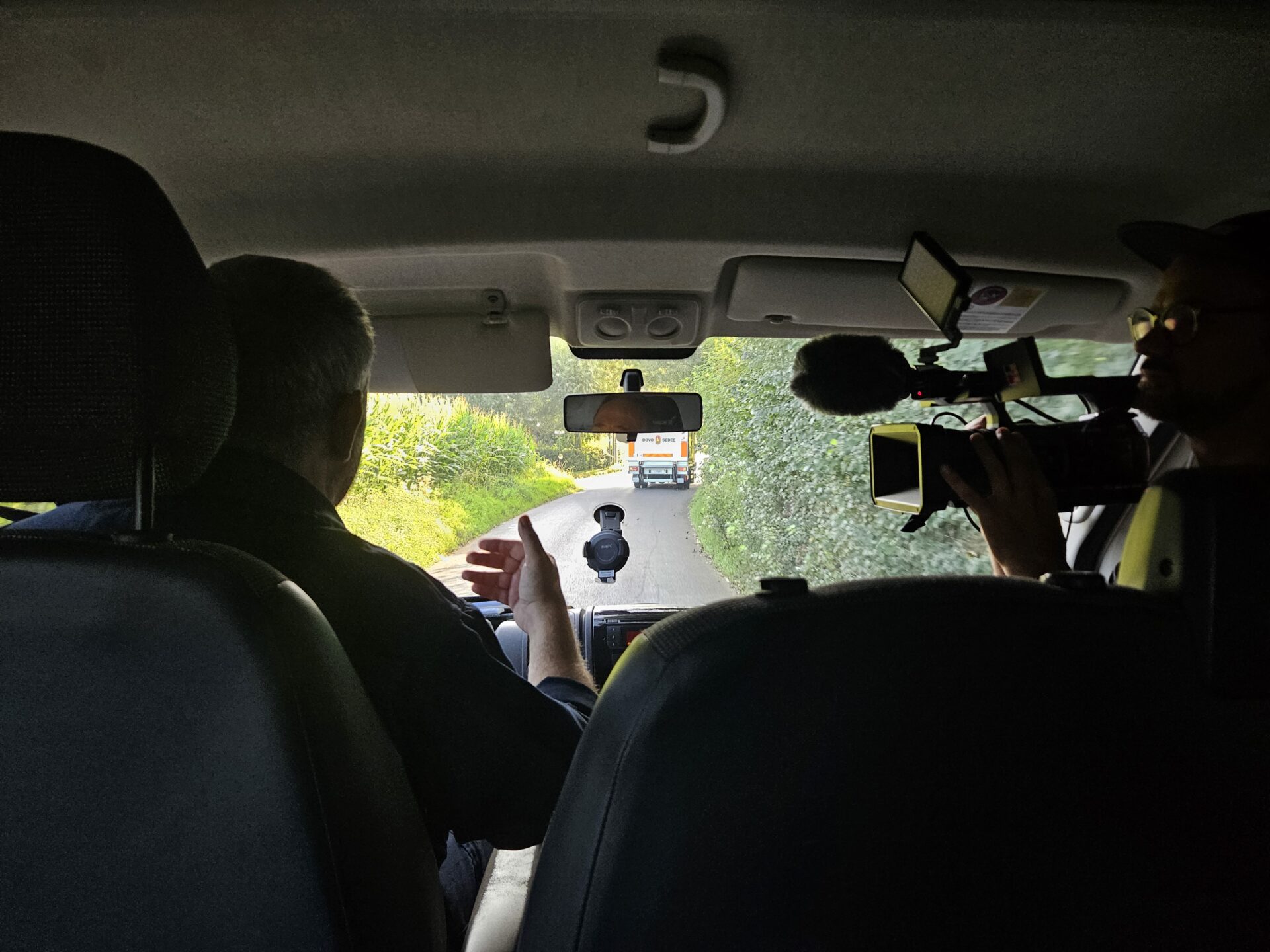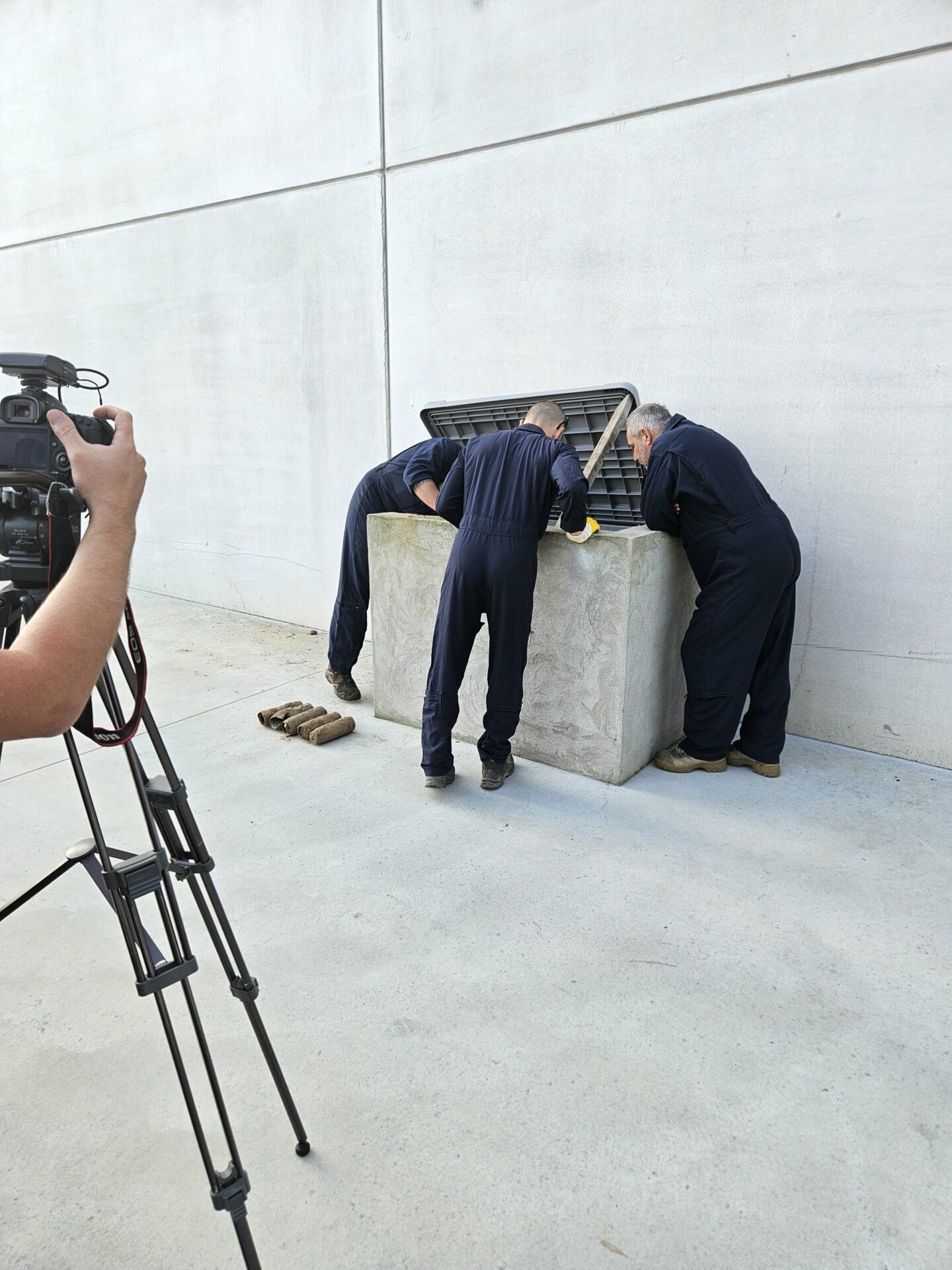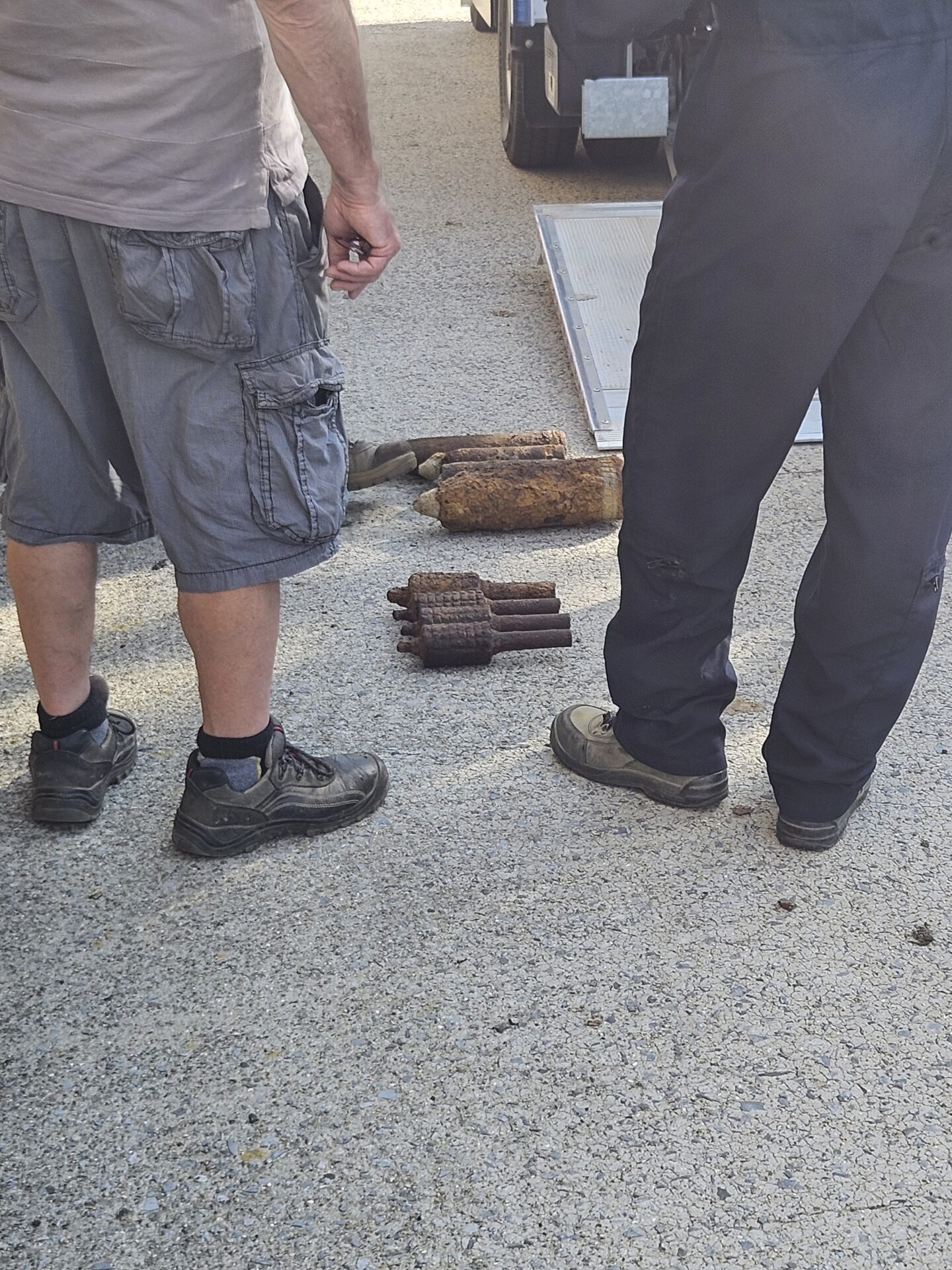On a warm September morning, DOVO non-commissioned officer Jacques Callebaut meets us in a busy Flemish rail station. As part of Belgium's bomb disposal unit, Callebaut spends much of his time dealing with explosives left over from the wars of the last century fought on Belgian soil.
Each day, he drives across the country to join his team at one of DOVO's numerous bases. Today, direction Ypres – a bloody focal point of the First World War.
Waved through the gates of the base in Langemark-Poelkapelle, home to many expansive graveyards dedicated to those who fell in the Great War, we are met by military officers, who guide us through the safety of the trip. Certain soldiers we are not permitted to film; they are involved in important projects abroad.
Each morning, the DOVO bomb specialists receive an extensive list of call-outs. The teams are divided and each take their orders. "If we discover something, wait until you get the signal, and then you can approach," Callebaut explains.

Credit: Dylan Carter/ The Brussels Times
In reality, it is not if DOVO discovers something but when. Demining the Belgian countryside is a full-time job and local police forces are typically inundated with calls relating to bombs and munitions. DOVO's bomb specialists have a packed schedule for the day ahead.
First stop, an industrial potato farm on the outskirts of Poperinge. The bomb disposal truck swings through a maze of small alleys leading to an isolated box on the edge of the premises. DOVO knows the site well. As machinery harvests potatoes from the earth, so too does it dig up hundreds of munitions from WW1, many of which failed to explode. Shells are commonly found during the harvest season, giving it the name "Iron Harvest".

Credit: Dylan Carter/ The Brussels Times
The bomb experts lift the lid on the container and begin removing an array of munitions. Hand grenades, mortars, bullet clips, and artillery shells quickly pile up on the floor. The DOVO members know their craft and handle the shells with speed and precision. Burying the shells in a pallet of sand, the bomb squad heads out to collect more explosives across the region.
Unearthing battles of old
With a cargo of explosive and sometimes toxic shells, DOVO drives carefully between its pick-up points. Next stop: a family farm on the border between Flanders and Wallonia, not far from the municipality of Hollebeke. Another day, another discovery for the farmer. He finds shells on his fields most months and carefully moves them into a hedgerow while waiting for the bomb squad to arrive. If they were to explode, it would almost certainly kill him.
After scraping away rust to ascertain whether the safety mechanisms on the shells were still in use, the munitions are once again transported onto the flatbed and into the van. In just two stops, there are already several dozen shells in the back.

Credit: Dylan Carter/ The Brussels Times
Heavy laden, we return to base. In a mess hall with several dozen bomb disposal experts (who must all speak French and Dutch), our journalists are treated to sausages and apple sauce. After a short repose, with the sound of the occasional controlled explosions in the distance, we hit the road again.
Finding an intact 50-pound aircraft bomb in a hedge would send most folk scrambling for cover. In the Ypres countryside, this is nothing out of the ordinary. On his 1950s pushbike, the farmer casually wheels up to the spot where the large explosive was found. Our camera crew had to stay in the vehicle as one of the experts struggled to pick up the bomb and place it in the back of the truck.
Working on the front line of history
While DOVO makes light work of their business, the job is not without risk. 128 DOVO officers have died in the line of duty since the Second World War. In 1987, at the very same base that we visited in Poelkapelle, four died as the result of transporting a toxic munition.
Back at base we are given a tour of DOVO's facilities. In specially built blast rooms, toxic munitions are detonated and the gases are burned or safely filtered out. With the push of a button, toxic explosives hanging from the roof of the chamber are detonated and the gases swiftly extracted. If inhaled, these fumes can burn the skin and asphyxiate.
Related News
- Unexploded war bomb found during excavation works on Belgian beach
- War ammunition safely removed from under Antwerp-Essen railway line
- German World War II mine discovered during patrol on Belgian coast
DOVO's means of destroying conventional explosives is relatively simple: buried in soil, the shells are strapped to an explosive shell. When detonated, they kick up with an impressive plume of soil and smoke, but little else. While awaiting destruction, shells are kept in special storage areas separated from the rest of the site. All the buildings are well spaced out to avoid any potential disaster.
As dusk falls over Ypres, the DOVO unit wraps up their day's meticulous work. Unearthing remnants of past conflicts, DOVO has worked like this for over 100 years to keep Belgium safe. Their daily harvest of iron is a silent tribute to peace over the fields of Flanders.
